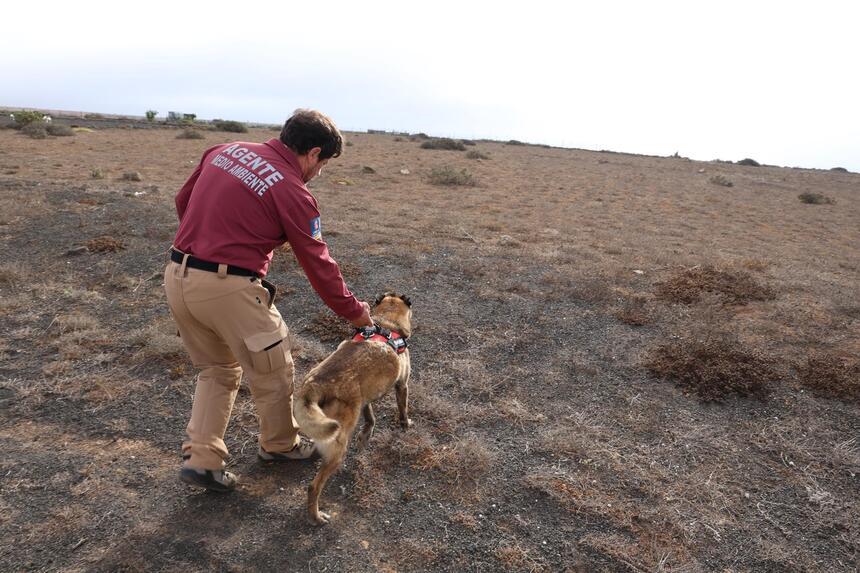The Cabildo of Lanzarote, in agreement with the Lanzarote Hunting Society, has reached a crucial accord to lift the temporary suspension of hunting activities in the municipality of Haría. This suspension was implemented in recent weeks due to successive cases of wildlife poisoning.
Yesterday afternoon, the president of the Cabildo, Oswaldo Betancort, and the councillor for Environment and Hunting, Samuel Martín, held a productive meeting at the Convent of Santo Domingo in Teguise with a broad representation of the more than 1,000 licensed hunters on the island. The meeting allowed for the establishment of a jointly agreed roadmap, with the primary focus on zoning the northern area of Lanzarote to designate authorised hunting areas where no poisoning incidents have occurred.
The hunting department’s technicians are already working on detailed maps to identify suitable spaces for this practice. Documentation will soon be submitted to the Government of the Canary Islands to obtain the necessary approvals from the relevant authority. The Cabildo aims to enable this exceptional route before the opening of shotgun hunting, scheduled for 28 September.
Since early August, 24 cases of poisoning have been recorded, impacting both wildlife and domestic animals—including hunting dogs, canaries, pet dogs, cats, and hedgehogs—prompting the temporary closure in Haría.
Gratitude to the Hunting Community
Both the president and the councillor expressed their appreciation for the constructive attitude of the hunters during the meeting. Betancort noted that “the temporary closure is the result of the actions of one or more criminals who will be identified and must answer before the law for the damage they are causing to the entire Lanzarote community.” The president also emphasised that “the Lanzarote hunter is exemplary: they engage in a sustainable, responsible activity and represent a model of sportsmanship.”
Betancort concluded that he emerged from this meeting with “a list of tasks to continue working on, both from the presidency of the Cabildo and from the Canary Islands Parliament.” He referred to issues raised in the meeting such as training fields, the potential update of closed seasons, the promotion of the Podenco Canario breed, and the need to address a modification of the Canary Islands Hunting Law, among other matters.
For his part, councillor Samuel Martín expressed his confidence that “the zoning work proposed by the Cabildo will receive the Government of the Canary Islands’ approval as soon as possible and will be included in the new hunting order.” He also indicated that the insular institution plans to extend the hunting period island-wide for an additional couple of days to compensate for the closure in the municipality of Haría.
Ongoing Collaboration
Both Betancort and Martín reminded attendees that this significant issue has been addressed in an orderly manner due to the close collaboration between the Cabildo and the Hunting Society. This relationship has strengthened in recent months through joint initiatives such as wheat sowing, the installation of water troughs, and promoting responsible hunting practices, among other projects that will continue with the establishment of new working groups once the hunting season concludes.
“The outcome of this situation confirms that by working together we can provide balanced responses to a sector that is an essential part of Lanzarote’s culture and environment,” concluded Oswaldo Betancort.














